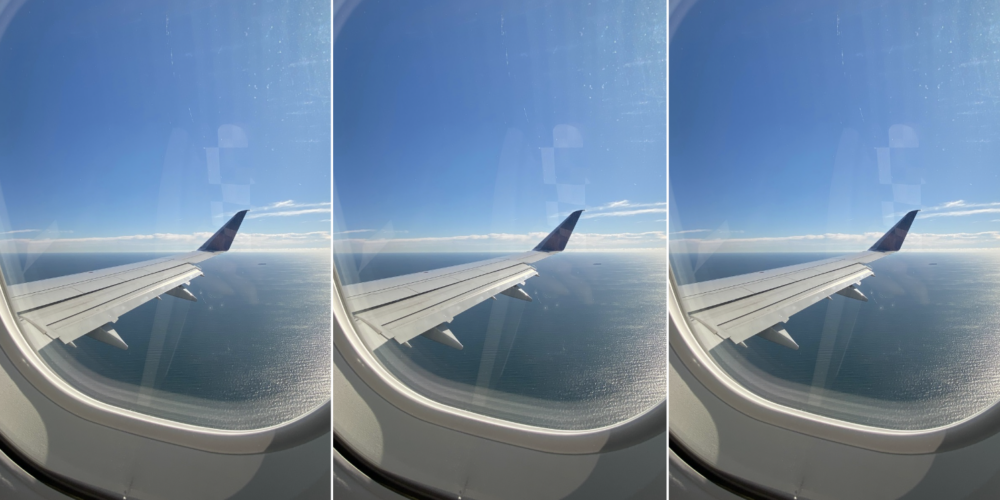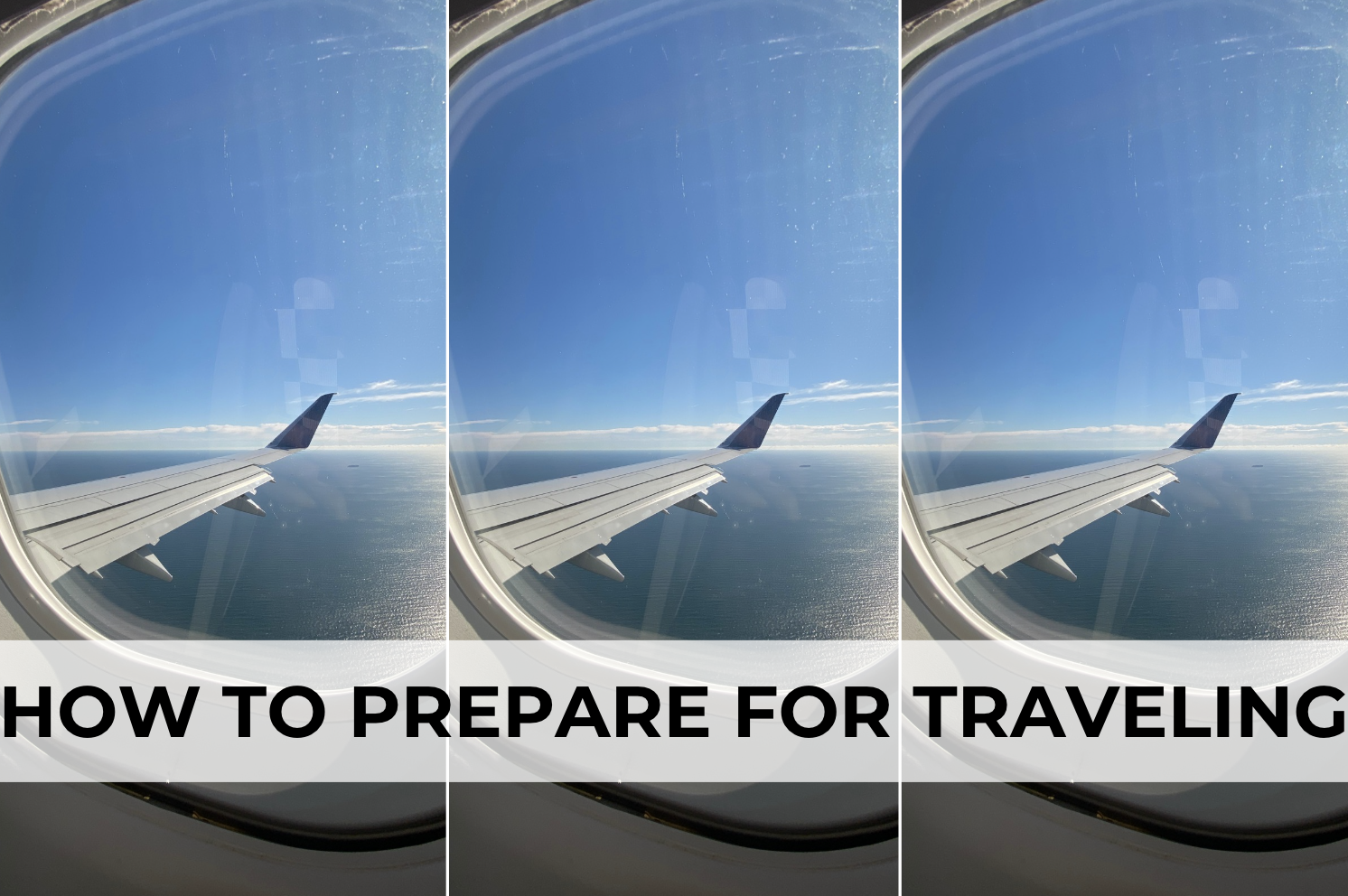In this post you’ll learn all about the essential tips on how to prepare for traveling for beginners.
Traveling the world is so exciting and fun, but definitely requires a bit of planning and preparation. As a traveler myself, I’ve definitely forgotten a thing or two when it comes to preparing for a trip, and now I’m here to make sure you don’t make the same mistakes that I have.
You are going to learn all about how to prepare for traveling, including how to prep your home, how to handle your finances, specific tasks to take care of before you leave, and more.
After reading this post, you will be fully prepared to travel freely with no worries.
This post is all about how to prepare for traveling and everything you need to know as a beginner.
Essential Tips On How To Prepare For Traveling
1. Do Your Research
Doing your research to prepare for traveling is one of the most important, if not the most important tip on this list. It’s so important to know what you’re getting yourself into and to be prepared for the unexpected.
Below is a complete list of everything you should research before you leave on your trip:
- Your destination and surrounding neighborhoods
- Local restaurants and tourist attractions
- Local grocery, drug, and convenience stores
- The nearest hospitals and police stations (emergency veterinarian as well if you’re traveling with a pet)
- The nearest public transportation routes
- Any travel documentation needed (ID, passport, etc.)
- Any medical documentation (if required)
- Travel documents needed for a pet or service animal (if applicable)
- Emergency/back-up plans for last minute changes
- Travel insurance (if required or necessary)
Researching this information beforehand is going to be incredibly useful to you, save you so much time while you’re traveling, and reduce a lot of stress, which we all love!
2. Plan Your Budget
There are a couple different ways you can plan your travel budget, but it will ultimately come down to what works best for you personally and how long you plan on traveling.
For short term budgets, do your research and get as close of an estimate as possible for how much you anticipate on spending. Include costs such as flights, car rentals, hotel stays, planned activities, shopping, food, public transportation, etc.
For long term budgets, research and plan for all of the above and the expenses you’ll be responsible for at home during the duration of your travel. If you’re traveling for a few weeks to months, you’re going to want to make sure you have enough saved to cover rent and bills.
For BOTH types of budgets, plan to set aside an emergency fund. This is extra money saved to cover unexpected expenses like flight delays and cancellations, medical emergencies, sudden changes in travel plans, etc.
Be realistic when setting your budget, and try your best to stick to it. It’s better to over estimate and save a little extra, than to under estimate and spend more than you mean to.
3. Share Your Travel Information With Someone You Trust
This is a BIG one, especially if you’re traveling solo!
Share your travel plans with friends and family before you leave on your trip. You don’t have to give them every little detail of your agenda, but you do want to let at least a few people know where you’re headed, how long you plan to stay, how to get in touch with you, and when you expect to return home.
In the case that something unfortunate happens and you don’t return home on time or your family can’t get ahold of you, at least they will know exactly where you are and will be able to help you.
4. Pack In A Carry-On Suitcase
Pack everything you need, including your clothes, shoes, toiletries, etc. in a carry-on size suitcase rather than a full-size suitcase. This is for a few reasons:
- Packing in a carry-on forces you to think logically about what you actually need to pack and how much you need to bring with you. It discourages you from over-packing when it’s not necessary.
- There are risks when it comes to checking a bag at an airport. Your luggage could get damaged in transit, or potentially get lost, and in that case you would be out of luck for the rest of your trip (presumably). Packing in a carry-on is convenient because you get to keep it with you throughout your travel day and ensure that it makes it to your final destination with you.
- Lastly, there’s no wait! At the end of the day, you already have your luggage with you and can book it out of the airport right after deplaning, rather than having to wait around at a baggage carousel for your suitcase. It’s a small win, but a win nonetheless.
This applies to any form of travel, and is most helpful for short-term trips versus long-term travel. Packing for a months-long trip in a carry-on might not be feasible, however when it is possible, opt for that carry-on bag instead!
5. Schedule Your Bills To Be Paid On Time
It’s so easy to get caught up in the excitement and planning of an upcoming trip, but that doesn’t mean you get to neglect your responsibilities at home while you’re away.
One easy way to stay on top of your finances while you’re traveling is to schedule out your future bills to get paid on time, or place them on an auto-pay schedule so that you don’t have to worry about it while you’re gone.
It’s important to make sure that you budget enough for your at home expenses, as well as your trip. If you plan to work while you’re away, then that’s a different story. However, if you don’t plan to work, double check and make sure that your bills will be completely covered.
This includes rent, phone service, internet, subscriptions, utilities, credit card payments, loans, etc.
6. Don’t Grocery Shop The Week Of Your Trip
To some this might be common sense, and to others this may sound ridiculous, BUT hear me out!
The week before you travel try not to go too heavy on the groceries, especially produce and dairy products, or anything that will spoil.
Challenge yourself to use up the rest of the produce you have lying around in your fridge and get creative with coming up with new recipes. This helps to be less wasteful, and also saves you a little bit of grocery money the week before your trip. It’s a win-win!
Anything that you don’t use up, try giving to friends or family to use before throwing it away. If all else fails, make sure you throw out anything that’s left before you leave on your trip. The last thing you want to come home to is rotten smelly food in your fridge or fruit flies swarming your kitchen because you left something out on accident.
7. Make A Final Check-List
The morning or night before you leave, make a check-list of everything you need to do before you walk out of the house. There can a be lot of little things, so making a check-list will help keep everything straight:
- Lock your windows
- Lock your doors
- Set security system/cameras
- Take out trash
- Set out luggage
- Clean/tidy up living spaces
- Take out trash
- Turn down heat or air conditioning
- Unplug unnecessary appliances
- Close curtains/blinds
- Put lighting on a timer (to turn on at sunset and off at sunrise)
- Make sure you have your phone, keys, wallet, and important travel documents and set them in a place you won’t forget them
- Double-check reservations and transportation information
- Leave a spare key with someone your trust
- Let someone know when you’re headed out
Everyone’s circumstances are different, so take precautions and prepare based on your needs and living situation!
This post was all about how to prepare for traveling as a beginner and ensure that all of your bases are covered and the planning process goes as smoothly as possible.



Leave a Reply